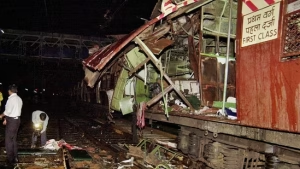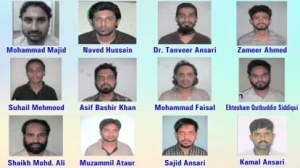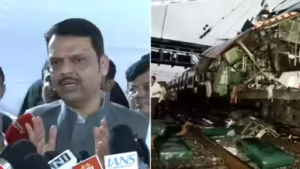Maharashtra – The Maharashtra government has announced its intention to challenge the recent acquittal of all 12 individuals accused in the 2006 Mumbai Train Bombings case before the Supreme Court. This decision comes after the Bombay High Court delivered a stunning verdict on Monday, clearing all accused persons in one of India’s deadliest terror attacks that claimed 189 lives on July 11, 2006.
Chief Minister Devendra Fadnavis confirmed that the state government would not accept the High Court’s judgment regarding the 2006 Mumbai Train Bombings case. “I will go through the entire order. I have discussed with the lawyers, and the high court verdict will be challenged in the Supreme Court,” Fadnavis declared, signaling the government’s determination to seek justice for the victims of this heinous attack.
Devastating Attack That Shook India

The 2006 Mumbai Train Bombings represented one of India’s most coordinated and deadly terror strikes, involving a series of synchronized explosions on Mumbai’s suburban railway network during peak evening hours. The attack on the 2006 Mumbai Train Bombings date of July 11, 2006, killed 189 people and injured nearly 900 others, making it more lethal than the infamous 2008 Mumbai terror attacks.
The 2006 Mumbai Train Bombings targeted Mumbai’s lifeline – the local train network that carries millions of commuters daily. The coordinated nature of the blasts across multiple locations demonstrated the sophisticated planning behind this terror attack, which sent shockwaves throughout the nation and highlighted vulnerabilities in India’s transportation security systems.
Initial Investigation and Convictions

Following the 2006 Mumbai Train Bombings, the Maharashtra Anti-Terrorism Squad launched an extensive investigation that led to the arrest of thirteen individuals suspected of involvement in the terror plot. The investigation into the 2006 Mumbai Train Bombings culminated in a local MCOCA (Maharashtra Control of Organised Crime Act) court convicting all but one of the accused in 2015.
The 2006 Mumbai Train Bombings case saw twelve individuals sentenced for their alleged roles in the coordinated attacks, with many spending nineteen years behind bars awaiting final resolution of their cases. However, one of the accused, Kamal Ahmed Ansari, died in 2021 while the legal proceedings were still ongoing, reducing the number of living accused to twelve.
High Court’s Scathing Verdict
The Bombay High Court’s judgment on the 2006 Mumbai Train Bombings case delivered a devastating critique of the prosecution’s handling of evidence and witness testimonies. A special division bench comprising Justices Anil Kilor and Shyam Chandak concluded that the prosecution “utterly failed” to prove the case against the accused in the 2006 Mumbai Train Bombings.
Also Read: Bangladesh Jet Crash Kills 25 at Dhaka School in Deadliest Accident Since 1984
The court’s 671-page verdict on the 2006 Mumbai Train Bombings revealed systematic failures in the investigation process, including cut-and-paste confessions, unreliable witness narratives, carelessly handled material evidence, and the hasty destruction of vital call data records. These procedural lapses undermined the entire case structure built by the prosecution.
Critical Analysis of Evidence


The High Court’s examination of the 2006 Mumbai Train Bombings evidence revealed significant inconsistencies in confessional statements provided by the accused. The court noted that while earlier portions of confessional statements contained detailed information, the sections relating specifically to the bomb blasts were vague and lacked substantial detail.
“If we see each of the confessional statements, it can be realised that the earlier part of the confessional statement, i.e., the portion barring the relevant portion in bold, the narration is in detail and the information is provided in depth. Whereas, when it comes to the narration in relation to the bomb blasts, the information given by each of the accused is not only vague but also does not throw much light on the aspects,” the court observed regarding the 2006 Mumbai Train Bombings case.
Judicial Concerns About False Closure
The High Court expressed serious concerns about creating false appearances of justice in the 2006 Mumbai Train Bombings case. The bench warned that presenting accused individuals as having been brought to justice without proper evidence gives a misleading sense of resolution that undermines public trust in the judicial system.
“Creating a false appearance of having solved a case by presenting that the accused have been brought to justice gives a misleading sense of resolution. This deceptive closure undermines public trust and falsely reassures society, while in reality, the true threat remains at large,” the court stated regarding the 2006 Mumbai Train Bombings prosecution.
Government’s Legal Strategy Moving Forward

The Maharashtra government’s decision to approach the Supreme Court regarding the 2006 Mumbai Train Bombings acquittals reflects its commitment to ensuring accountability for this major terror attack. Chief Minister Fadnavis indicated that legal experts would thoroughly review the High Court’s reasoning before formulating the appeal strategy.
The appeal process in the 2006 Mumbai Train Bombings case will likely focus on challenging the High Court’s assessment of evidence and procedural findings. The government may argue that technical procedural issues should not overshadow the gravity of the terror attack and the need for justice.
The 2006 Mumbai Train Bombings case’s journey to the Supreme Court represents a critical juncture in India’s fight against terrorism and the pursuit of justice for victims of one of the country’s deadliest attacks. The outcome will have significant implications for how terror cases are prosecuted and adjudicated in India’s legal system.

